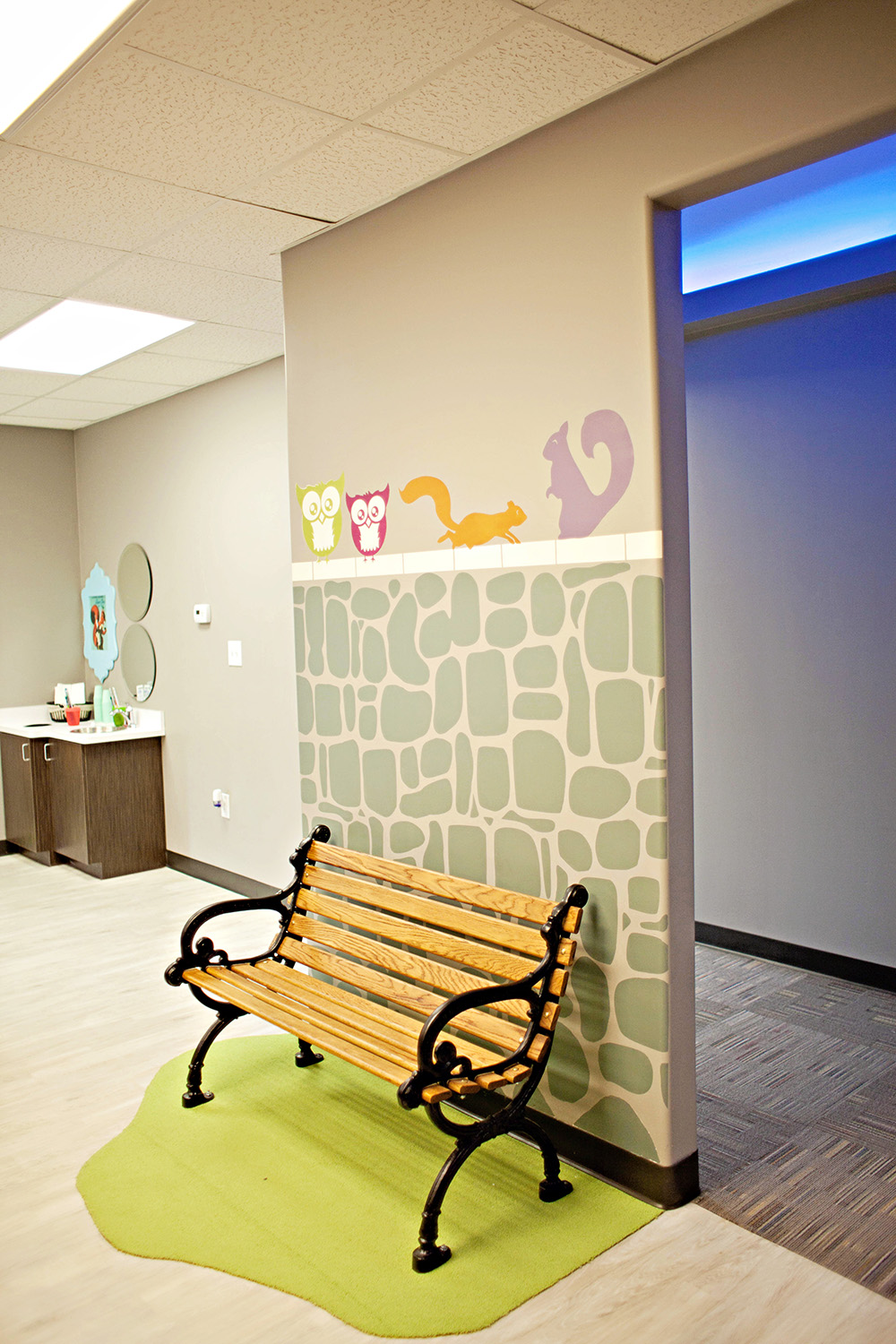General Questions
ABSOLUTELY. We welcome you to accompany your child back for all treatments. We will never make you be present for care if you choose not to, but we have an open-door policy at Parkview Pediatric Dentistry.
It is our primary focus to help your child master the dental appointment. Here are a few simple guidelines that we have found to help children master their dental appointments.
Silent Observer: The relationship between parent and child is so strong that in order for the staff to have the opportunity to build trust and create a positive experience with your child, it is imperative that you accompany your child as a silent observer.
Some children do perform better when a parent isn’t present. If this is found to be the case our doctors will discuss different methods to help your child master the dental appointment.
Limited Size: The treatment and waiting areas have limited size. Please plan to bring as few extra individuals to your appointments as possible.
Special Requests: If there are any special requests for care or you have questions regarding guidelines for parents please discuss those with us prior to the appointment.
When the first tooth appears, or no later than their first birthday. Pediatric dentists focus on prevention and research shows that children who visit the dentist earlier are less likely to have tooth decay.
Our doctors are Board Certified and are trained in a way to make it fun and exciting for kids. The office environment is comfortable for and tailored to children.
Does this mean that all kids need to see a pediatric dentist? Absolutely not. Many general dentists are great for treating children. We work closely with our dental community to partner in providing the best care for your children and help other area dentists understand the specific needs of the pediatric population.
Before children have teeth, a wet washcloth is helpful to rub on the gums and remove food and bacteria. When teeth come in, any soft-bristled toothbrush with a small head (preferably one designed for infants) will help remove bacteria that can lead to decay. Teeth should be brushed at least once a day at bedtime.
As soon as the teeth begin to appear, start brushing twice daily using fluoridated toothpaste and a soft, age-appropriate sized toothbrush. For children under 2 years old, you should only use a “smear” of toothpaste. For children over 2 years old, you can use a “pea” sized amount of toothpaste.
This varies from child to child. However, research continues to show is that children do not do an adequate job brushing their teeth alone until they reach the age of 6-7. Even at this age, most children still require supervision when brushing to prevent “10-second brushings”.
YES. They are not just for chewing. Baby teeth are important for speech development, development of the jaw, and keeping space for permanent teeth. Decay in baby teeth can be easily prevented or treated, but failing to take care of baby teeth can cause life-threatening infections.
Not necessarily. These habits only become a problem if they last for long periods of time and begin to cause changes in tooth alignment and facial shape. Ideally, these habits don’t exist or last for a short period of time. However, this is not always the case. Because of this, we have many recommendations and solutions for removing these habits in children. We are available to discuss with you and help decide if and when these habits have become detrimental.
A check-up every six months is recommended in order prevent cavities and other dental problems. However, some children can benefit from different schedules. For example patients who are in braces can benefit from more regular cleanings, and some children who have great brushing habits and less chance of dental decay can benefit from more spaced out visits.
Sealants are protective coverings that go down in the deep grooves of teeth to keep bacteria from living in them. Studies show that 90% of decay on teeth occur in the grooves that could be protected by sealants.
Fluoride is naturally found in the environment. In West Texas it is naturally found in the groundwater. When used correctly fluoride can help prevent decay from forming. Unfortunately the groundwater can contain too much fluoride and cause staining on teeth. The city water has the optimal amount of fluoride for drinking. Fluoride helps to strengthen teeth by remineralizing broken down tooth structure and decreasing sensitivity. If you have further questions about fluoride please feel free to talk with our staff.
Radiographs help our doctors correctly diagnose oral findings. New advances in technology utilized by our office can dramatically reduce x-ray exposure. As a pediatric dentist we strive to reduce radiation exposure for your children. At Parkview Pediatric Dentistry we do not contract with insurance companies and don’t take x-rays just because they are a covered service. We closely follow the American Academy of Pediatric Dentistry guidelines for radiation exposures to decrease x-ray exposure for all our patients. We also use all digital x-rays that allow us to decrease the radiation dose even further.
This is called silver diamine fluoride. It has been FDA approved for use in the united states for 5 years but has been used in other parts of the world for 60-80 years.


